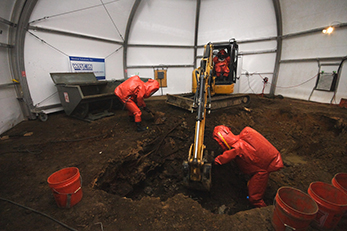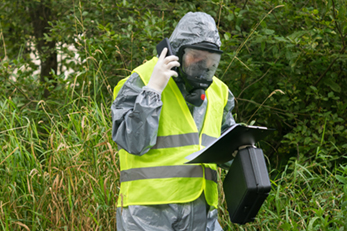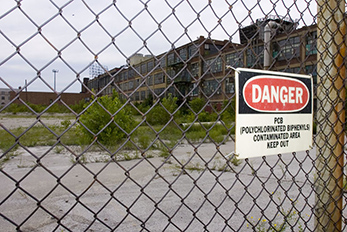Main Content
Learn how to select and implement the most effective in situ technology based on site conditions, while complying with current regulatory and industry standards.
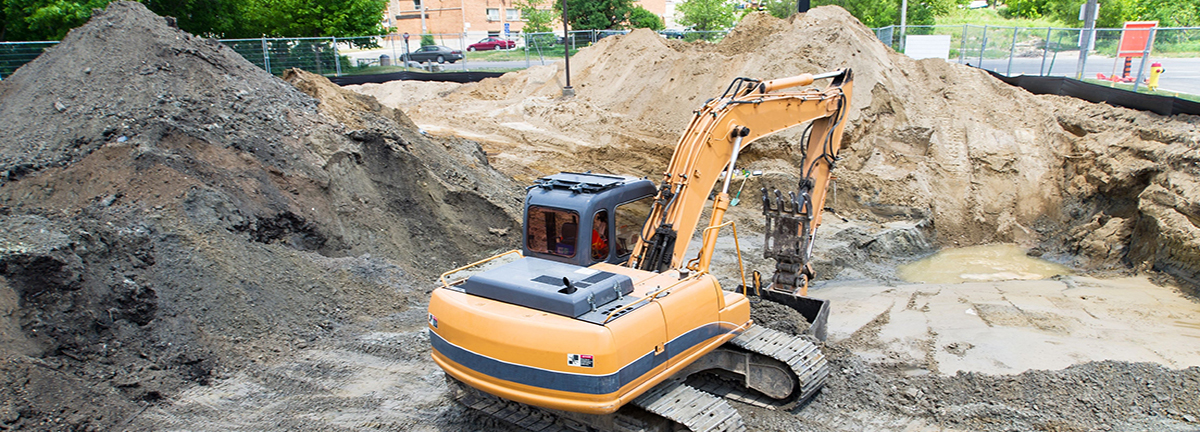
Course Status: Canceled!
The Science and Practical Aspects of In situ Technologies course on April 9, 2025 has been canceled. Registrants will be contacted. Please join our email list to be notified when the next offering is scheduled!
Jump to: Overview | Instructor | Reviews | CE Credits | Contact Us | Related Courses | Join Email List
Course Details
Course Name: The Science and Practical Aspects of In situ Technologies
Course Code: EN0510CA25
Date of Most Recent Offering: April 9, 2025 Canceled
Course Overview
Do you understand your site? Have you addressed contaminant distribution, concentrations, and total mass? What are the physical and chemical properties of the contaminant? What are the characteristics and permeability of the substrate? Do aerobic, anaerobic, or conditions in between prevail?
Given this context, how do you select and implement the most effective in situ technology?
This class will present the science and practical aspects of bioremediation, chemical oxidation, thermal treatment (ERH, TCH, SEE), and zero valent iron (along with other reducing technologies).
Featured Topics
- Do’s and Don’ts of Injections
- Treatment Train Techniques for Combining Technologies
Learner Objectives
Upon completion of this course, attendees will have a framework and technology-specific information to assist in evaluation and selection of remedial alternatives while adhering to current regulatory and industry standards.
Who Should Attend?
This class is well-suited for professionals involved in site investigation, characterization, and remediation; those who want to remain current in the latest innovative technologies; and industry and legal decision makers who need current information to make informed decisions. Past participants have included:
- Consultants
- Environmental Engineers
- Environmental Scientists
- Geologists
- Laboratory Managers
- Licensed Site Remediation Professionals
- Project Managers
NOTE: This class was formerly titled “In situ Technologies for Site Remediation.”
Meet Your Instructors
Faculty Coordinator

Richard Britton, PG, LSRP, Matrix New World Engineering
As Senior Technical Director, Mr. Britton is responsible for technical leadership, mentoring, and direction on a company-wide basis. He has co-authored several publications describing innovative investigative techniques for bedrock aquifers that result in a more economical and efficient remediation approach. Mr. Britton works with attorneys as an expert on matters of cost allocation, liability, insurance, and remediation and has prepared expert reports for litigation on these issues.
Additional Invited Instructors
James Cummings, US EPA – Technology Assessment Branch
Jim Cummings is in the Technology Assessment Branch in the Office of Site Remediation and Technology Innovation at EPA headquarters. He has over 25 years of experience in the development, evaluation and deployment of innovative tools for the characterization and remediation of hazardous waste sites. He provides technical support to federal and state RPMs in cleanup of wood treaters, former Manufactured Gas Plants (MGPs) and chlorinated solvent sites, with a focus on in situ thermal remedies. He co-managed numerous Innovative Technology Demonstration projects under the Superfund Innovative Technology Evaluation (SITE) program. He has chaired sessions and presented at dozens of domestic and international remediation conferences. Recent interests include the use of Combined Remedies to exploit synergies among technologies and accelerate site closure.
Daniel W. Elliott, Ph.D., Geosyntec Consultants
Daniel Elliott is a Senior Consultant and an Environmental Engineer based in New Jersey with more than 20 years of experience focused on environmental management and site remediation. Dan works with leading industrial manufacturers and development interests on the characterization and remediation of properties impacted by chlorinated solvents and other organic compounds in soil and groundwater, and the environmental management requirements of industrial and commercial entities and academic institutions.
John S. Haselow, PhD, PE, Redox Tech, LL
Dr. Haselow is a recognized expert for in situ soil and groundwater remediation. He has extensive experience with aerobic, anaerobic and co-metabolic bioremediation. He also has been involved in the research development and application of in situ chemical and reduction technologies such as ozone, Fenton’s chemistry, permanganate, hydrogen peroxide, persulfate, and zero valent iron. The company that Dr. Haselow owns and founded (Redox Tech, LLC) has completed over 800 in situ remediation projects.
Laurie LaPat-Polasko, Ph.D., Matrix New World Engineering
Laurie LaPat-Polasko is the National Director of Remediation for Matrix New World Engineering. She has more than 27 years of experience in groundwater and soil remediation and wastewater treatment. She combines her knowledge of microbiology with a background in civil engineering to implement cost-effective remediation solutions. Dr. LaPat-Polasko isolated the bacterium, Pseudomonas LP, which biodegrades methylene chloride. In addition, she has evaluated pathogens in groundwater, surface water, drinking water, and soil and has developed approaches to mitigate their impact. She has taught graduate courses in water and soil remediation at Arizona State University. She received the 2018 Gold Medal Stevie Award for Woman of the Year in Technology.
David Robinson, LSRP, Synergy Environmental, Inc.
Mr. Robinson has over 25 years of experience in the environmental industry including Site Remediation, Program Management, Personnel Management, Business Development and technical expertise. Mr. Robinson is an analytical chemist with experience in environmental analyses, analytical development and quality control. He is a recognized expert in the use of innovative and sustainable technologies for site remediation.
Student Reviews
“I appreciate the usefulness of having the regulatory personnel attend and present in these classes.”
– Jonathan Lisko
Lisko Environmental, LLC
“Enjoyed all the case studies, good to see actual real world implementation.”
– Past Participant
“Very good balance of complex and practical aspects of in-situ selection methodology.”
– Past Participant
Continuing Education Credits
The most recent offering of The Science and Practical Aspects of In situ Technologies was approved for the following credits from professional organizations. We will reapply for similar credits the next time the course runs, but we cannot guarantee credit approval for future offerings.
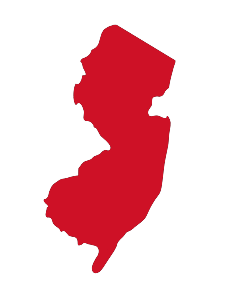 New Jersey
New Jersey
NJ Certified Public Works Managers (CPWM): 5 Technical Contact Hours (Course No. DLGS-RUCPE25-7)
NJ Continuing Legal Education: 6 CLEs (Course No. 303)
NJ Drinking Water and Wastewater Operators: 6 TCHs (Approval #01-120701-30)
NJ Health Officers and Registered Environmental Health Specialists (HO/REHS): Rutgers University, NJAES, Office of Continuing Professional Education has been approved by the New Jersey Department of Health as a provider of NJ Public Health Continuing Education Contact Hours (CEs). Participants who complete this education program will be awarded 6.0 NJ Public Health Continuing Education Contact Hours (CEs). (Course No. 21962)
NJ Licensed Site Remediation Professionals (LSRP): 6 Technical CECs (Course No. 2012-015)
NJ Professional Engineers: 6 Continuing Professional Competency (CPC) Credits
 New York
New York
NY Professional Engineers: 6 PDHs (NOTE: This class may not be used to fulfill the land surveyors continuing education requirement in NYS.)
 Meals
Meals
Continental breakfast and lunch will be provided to you at no additional cost.
NOTE: If you have any dietary restrictions or food allergies, please alert us at least two (2) weeks in advance of the course start date so that we can make reasonable accommodations. We cannot guarantee accommodations for special requests made after that time.
Program Questions? We’re Here to Help!
If you have any questions about The Science and Practical Aspects of In situ Technologies, please don’t hesitate to reach out to us.

Senior Program Coordinator: Pamela Springard-Mayer
848-932-7463
pspring@rutgers.edu
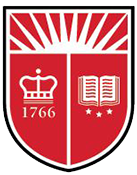
Administrative Assistant: Claudine Oleskin
848-932-7204
coleskin@njaes.rutgers.edu
For registration assistance, please contact our Registration Department at 848-932-9271, option 2 or email registration@njaes.rutgers.edu.
